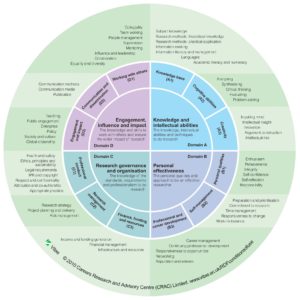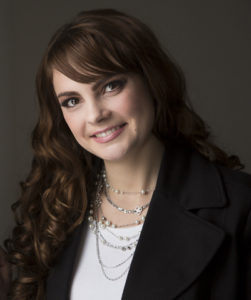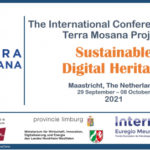Postdoc Professional Development – Departmental Integration
Getting Embedded within your Department / Faculty
Something that Maastricht University does, that I’m unaware whether other universities do, is invite postdoctoral researchers to Department meetings! Now in COVID times, another Zoom meeting doesn’t sound very thrilling as a researcher, but have to concede that it is one of the simplest and most-effective contributors to my professional development as a scholar and let me tell you why.
Going Beyond Basic Transferable Skills

Many academic institutions push postdoctoral researchers to develop their “transferrable skills” which include presentation, networking, writing your CV, academic writing, and other related soft skills. The university Career Centres or Student Support Services often provide a series of workshops or seminars on these topics, which are sometimes mandatory for PhD and postdoctoral researchers to complete.
The challenge with these types of courses being mandatory, for me personally and I assume many other “mature PhD students” (e.g., older than 25 years of age), is that I previously had a professional career in communications and marketing. I taught academics how to use social media and how to translate their research into “lay terms” so that the public could understand their work. Prior to my PhD, I had given so many important presentations and pitches to big clients (of the marketing firm I worked for) and I interacted (i.e., networked) with multiple industry partners as well as profound senior scholars.
During my PhD, I attended a module designed for PhD students as well as several additional “communications skills” workshops for academics and they were all taught from a ground-zero approach. What I mean here is that the instructors often assume the attendees have absolutely no previous experience. Regardless of my own 8-10 years of communications experience, many PhD students have held part-time roles in offices and have given presentations in their previous academic degrees (e.g., Bachelors and Masters). This is particularly true for academics who hold a two-year Masters degree from Canada, and the United States from what I’ve been told, because these skills are greatly developed through these rather intensive programs. While I’m not saying that academics cannot continually improve their existing skills, I think re-framing the concept of “transferable skills” should be considered further for individuals with different backgrounds and those who have extensive existing skillsets.
I think this challenge stems, in part, from the culture of treating every PhD student as an inexperienced apprentice. I think emphasising and providing these “transferable skills” workshops to younger PhD students who moved directly from a bachelor’s degree to a PhD with no gap year or full-time work experience (as is more common in Europe) or international students moving to a new country who have has different communication norms and academic protocols makes a ton of sense. With experience comes wisdom and independent scholarship, which is always noted in tenure-track job descriptions. However, actually looking at individuals’ backgrounds and existing soft skills can allow postdocs achieve their professional development faster!
The Administrative Side of Being a Faculty Member
This brings me back to the inspiration behind this week’s blog post, which is attending Department meetings. Now being someone who has completed 3 academic degrees (=10 years of higher education) and been employed as a non-academic staff member for nearly 4 years, have “done my time” in navigating the administrative side of universities. They are complex systems that have a web of staff, all responsible for different activities, and impossible for many people who haven’t been “on the inside” to figure out. Although I have this experience and knowledge of how to map out the university’s organigramme (i.e., structural hierarchy), I do not have a great understanding of the administrative side of faculty members’ roles.
Besides the logistics of organising teaching schedules, faculty members need to deal with student complaints about the academic programs, and foreign faculty members need to learn the national language. In my case here in The Netherlands, faculty members must achieve a certain level of Dutch (as assessed through national exams) in order to become permanent or tenure-track staff. They also need to coordinate with library staff for student access to materials, etc. There are a lot of administrative processes that impact faculty members’ ability to teach and conduct research.
Personalising Professional Development for Postdocs
When Assistant Professors step into their first contract/role (hopefully on the tenure-track), they are recognised as having produced sufficient scholarship in their field and showing potential to be a great teacher. What is less known about an applicant or new hire, is their personality and ability to handle faculty administration.
I think including postdoctoral researchers in Department meetings sets them up for administrative success in the future. They will understand the types of challenges they are yet to face as an Assistant Professor and be better equipped with knowledge and past experience on how to tackle them. In addition to this, they can observe the leadership styles of the Chairs/Heads of Department and learn from them.
Permitting postdocs to “sit on the academic bench” so-to-say within their associated Department and Faculty, is a simple and cost-effective professional development activity. If the postdoctoral researcher is a journeyman (or journeywoman / journeyperson) who has completed their apprenticeship (PhD), let them hone their craft and improve the transferable skills that make sense for their individual backgrounds and career goals.
Some early-career researchers already know what they need to achieve and are willing to put them time in, so if you have the opportunity, I recommend getting involved and requesting that your institution make exceptions to the current administrative hurdles if you really want to foster your academic growth and strive for the tenure track.




